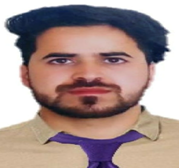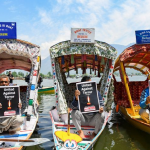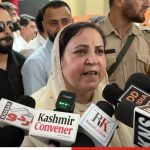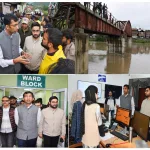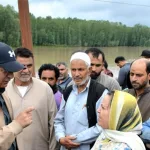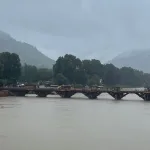In the majestic landscape of Jammu & Kashmir, where snow-capped peaks touch the skies and rivers whisper stories of centuries gone by, the essence of knowledge has always run deepwoven through oral traditions, folklore, poetry, and lived experiences. And yet, when we speak of libraries in this land of culture and conflict, we often picture silent rooms, rows of aging books, and underutilized spaces.
But what if our libraries could breathe?
What if, instead of merely holding books, our libraries could hold peopletheir voices, their struggles, their hopes, their wisdom? What if the library was not just a repository of information, but a living organism of community, emotion, and identity?
This vision gives birth to an innovative concept: “Zinda Kitaab Ghar” the People’s Living Library. A reimagined model of libraries tailored for the socio-cultural realities of Jammu & Kashmir, Zinda Kitaab Ghar transforms the idea of a library from a passive book-lending institution into an active space for storytelling, healing, and shared learning.
At the heart of this concept lies a simple but profound idea: people themselves become books. In a Zinda Kitaab Ghar, individuals from all walks of lifeartisans, teachers, farmers, veterans, survivors, poets, and scholars can be “borrowed” like books. Visitors sit with them, listen to their stories, ask questions, and walk away with insights no printed page can offer. This “Human Library” approach fosters empathy, breaks stereotypes, and bridges generational and social divides.
In a region like Jammu & Kashmir, where pain and resilience often walk hand-in-hand, the therapeutic value of such a space cannot be overstated. Storytelling becomes a tool for emotional expression and collective healing, especially for youth grappling with trauma, identity confusion, or lack of direction. A person listening to a war widow or an ex-serviceman shares not just knowledge but a profound human connection.
But the vision of Zinda Kitaab Ghar does not end there.
Each library under this model would host cultural corners dedicated to preserving local languages and traditionsKashmiri, Dogri, Ladakhi, Gujari, Balti, and more. Through curated sessions of dastangoi (oral storytelling), folk music recitals, and interactive language learning circles, the library becomes a cultural guardian, safeguarding intangible heritage that is slowly fading away.
To ensure outreach, ‘Library Without Walls’ mobile units would travel to remote villages, carrying not just books but real peoplemotivators, educators, mental health workers, and storytellers. These mobile libraries would hold “read-and-talk” sessions, moral education drives, and youth discussions under the open sky, ensuring even the most underserved corners of the Union Territory are touched by the warmth of knowledge and community.
What makes Zinda Kitaab Ghar truly unique is its inclusive, participatory ethos. Community members are invited not only to consume knowledge but to contribute it. A retired carpenter may conduct workshops on traditional joinery. A local grandmother may teach time-honored recipes or lullabies. A Kashmiri weaver could guide students through the magic of pashmina. This knowledge barter system ensures that everyoneregardless of literacy level or economic statushas something to offer and something to learn.
To engage the youth meaningfully, the library would include spaces like the Youth Idea Lab, where students are encouraged to share and develop innovative solutions to local problems. The People’s Parliamenta monthly eventwould allow youth to simulate debates on governance, healthcare, education, and development. In a place where civic participation is often limited, such initiatives can sow the seeds of democratic engagement and critical thinking.
Equally important are healing zones, including silent speaker circles where individuals express trauma or thoughts through non-verbal mediums like art, music, and gesture, supported by trained facilitators. These efforts would be especially crucial formental health awareness. In this way, the library evolves beyond a center of booksit becomes a sanctuary of voices, of belonging, of collective memory.
This is not just a fanciful idea. This is a call for rethinking public spaces in Jammu & Kashmir. Libraries must not be left behind in the digital racethey must evolve, adapt, and rise to meet the emotional and social needs of the community they serve.
Jammu & Kashmir doesn’t just need more books it needs more human connection. It needs spaces where the past can speak, the present can reflect, and the future can be imagined. It needs libraries that are alive.
It needs Zinda Kitaab Ghars where stories don’t sit silently on shelves but walk, breathe, and speak.
(Author is a columnist and can be reached at: [email protected])


